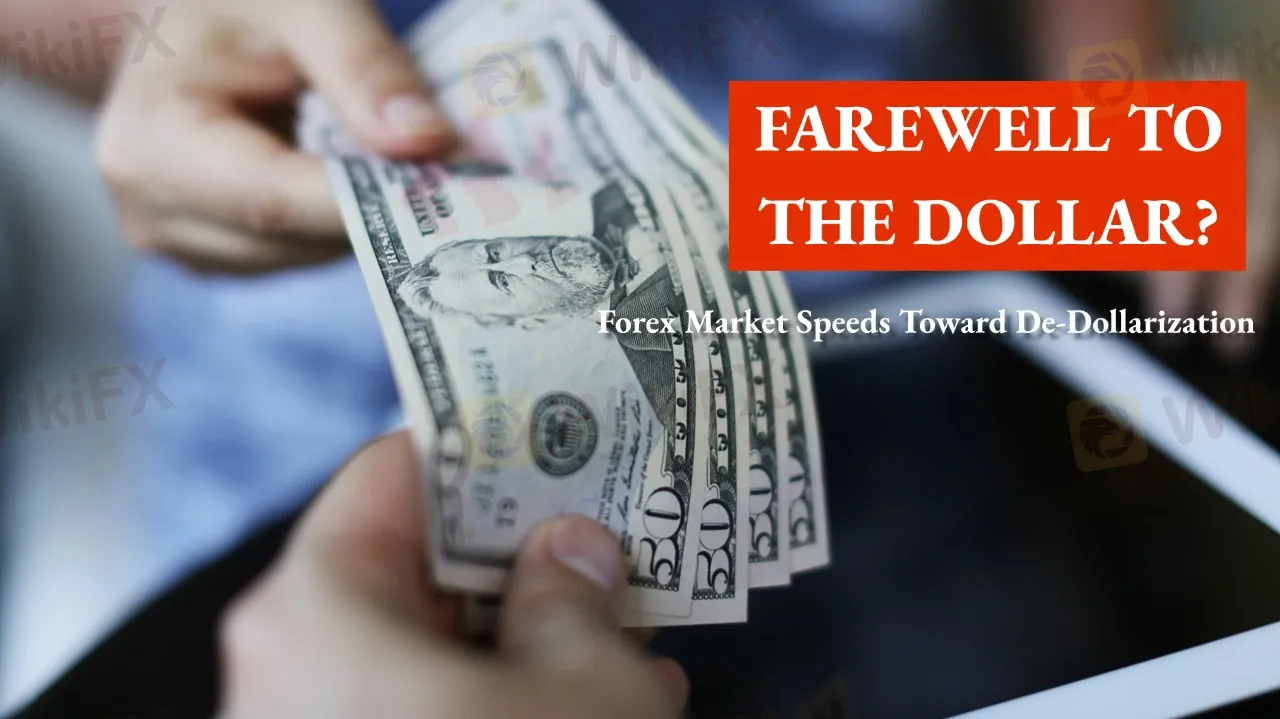Farewell to the Dollar? Forex Market Speeds Toward De-Dollarization
Abstract:The dollar is losing its dominance? The forex market is witnessing a rapid shift toward de-dollarization, sparking serious investor attention.

Recently, the U.S. dollar has been under significant selling pressure in the forex market. Not only has it weakened against major currencies, but U.S. assets across the board—stocks, bonds, and the dollar itself—are facing simultaneous outflows.
Unlike typical crises where investors rush to hold dollars and U.S. Treasuries, the current trend shows them actively avoiding U.S. assets. This signals a potential erosion of long-held confidence in the dollar as a safe haven.
Mounting Challenges Push De-Dollarization into High Gear
Analysts from Deutsche Bank point out that the dollar is facing an unprecedented trust issue. On one hand, global demand for dollar-denominated assets is shrinking.
On the other, rising trade tensions with major economies have brought currency issues into the spotlight, further undermining market confidence.
What's more, concerns about the political use of dollar liquidity are prompting central banks and investors worldwide to reduce their reliance on the dollar. This de-dollarization trend is no longer theoretical—its accelerating in real time.
Official institutions are considering cutting back on U.S. Treasuries, and global contracts are increasingly shifting away from being dollar-denominated.
In this shifting environment, forex investors need to sharpen their risk radar. Diversifying away from dollar exposure is becoming a prudent strategy. Currencies like the euro, yen, and even the yuan are gaining attention as potential alternatives.
At the same time, traditional safe-haven assets like gold may see renewed demand, especially as concerns over global liquidity risks intensify.
Investors should also prepare for heightened volatility. Short-term trading strategies must be more sensitive to event-driven movements and policy signals. In the long term, it remains to be seen whether the dollar will lose its global dominance—but the current momentum toward de-dollarization is undeniable, and investors cant afford to ignore it.

Read more

Broker Comparsion: FXTM vs AvaTrade
FXTM and AvaTrade are two well-established online brokers offering forex and CFD trading across global markets. Both enjoy strong reputations and high ratings on WikiFX—FXTM holds an AAA overall rating, while AvaTrade scores 9.49/10, indicating they’re regarded as reliable choices by the community. However, since brokers have great reputation in the industry, how do we know which one is more suitable for individuals to invest in? Today's article is about the comparison between FXTM and AvaTrade.

Pi Network: Scam Allegations Spark Heated Debate
A whistleblower report has surfaced, casting doubt on the legitimacy of Pi Network, alleging psychological manipulation, opaque operations, and potential financial exploitation. What is your take on this?

Webull Listed on Nasdaq Following SPAC Merger with SK Growth
Webull and SK Growth complete their business combination, with Webull now trading under the ticker “BULL.” App hits 50 million downloads worldwide.

UN Warns Asian Scam Operations are Spreading Worldwide
UN report reveals Asian scam operations expanding globally, targeting Africa, Latin America with cyberfraud, generating billions amid crackdowns.
WikiFX Broker
Latest News
Love, Investment & Lies: Online Date Turned into a RM103,000 Scam
Broker Took 10% of User's Profits – New Way to Swindle You? Beware!
Pi Network: Scam Allegations Spark Heated Debate
Broker Comparsion: FXTM vs AvaTrade
Account Deleted, Funds Gone: A New Broker Tactic to Beware Of?
Broker’s Promise Turns to Loss – Funds Disappear, No Compensation!
StoneX Subsidiary, Gain Global Markets Bermuda, Penalized for Trading Misconduct
El Salvador and U.S. Launch Cross-Border Crypto Regulatory Sandbox
The Instagram Promise That Stole RM33,000
Coinbase Launches Bitcoin Yield Fund for Institutional Investors
Rate Calc
